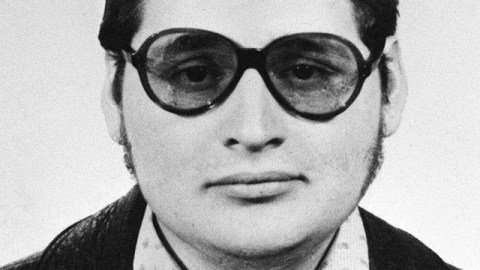Carlos the Jackal Doesn’t Approve of his Sudden Popularity

He is serving a life sentence in a Parisian prison and considered an icon of a bygone Cold War-era type of terrorism. So you wouldn’t expect to hear much from Ilich Ramirez Sanchez, better known as Carlos the Jackal for his terrorist acts with the Popular Front for the Liberation of Palestine in the 1970s. But an unexplained pop culture fascination is suddenly bringing him out of the shadows.
After being in prison for over a decade now, the bulk of this fascination comes from “Carlos,” a five-hour, 33-minute film about Sanchez that recently screened at the Cannes Film Festival and is expected to make its stateside debut at the New York Film Festival in the fall. The film’s rounds on the festival circuit come on the heels of Venezuelan president Hugo Chavez lauding Carlos the Jackal late last year, a move that brought the world’s most-iconic pre-bin Laden terrorist back to the forefront.
In recent years, Carlos has openly criticized Al Qaeda for their contemporary approach to terrorism but also lashed out against the film for its “deliberate falsifications of history and lies.” After facing a new terror trial in 2007, Sanchez has gone from a silenced figure of 1970s fundamentalism to an outspoken icon. He has addressed President Obama with a letter regarding the closing of Guantanamo Bay and also publicly commented on Chavez’ presidency in his home country of Venezuela. It’s a shift towards a more public profile, considering Sanchez’ only previous acts of protest since being imprisoned involve the 2003 publication of his book.
As for his portrayals in film, Carlos the Jackal’s anger isn’t isolated to the almost-six-hour epic at Cannes. He has also lashed out against a documentary about him. With the help of Isabelle Count-Peyre, a lawyer whom Sanchez married in prison, he has sued the producers of both “Carlos” and claimed intellectual property against the makers of the documentary about his life. All this legal action and public outcry has inspired some to ask the awkward question, “is Carlos the Jackal trying to secure his brand?” It’s not such an outlandish question, considering the iconography Carlos the Jackal built around himself during the 1970s.
If there is one unfortunate byproduct of this sudden fascination with Carlos the Jackal, it’s the emerging trend of the terrorist as rock star. It’s the kind of terrorist chic controversy that is likely to inspire more and more dialogue and debate. Considering we’re already discussing the merits of terrorist facial-hair fashions, it’s a controversial line that people are apparently ready to start walking. Just don’t ask Carlos the Jackal for his approval.




